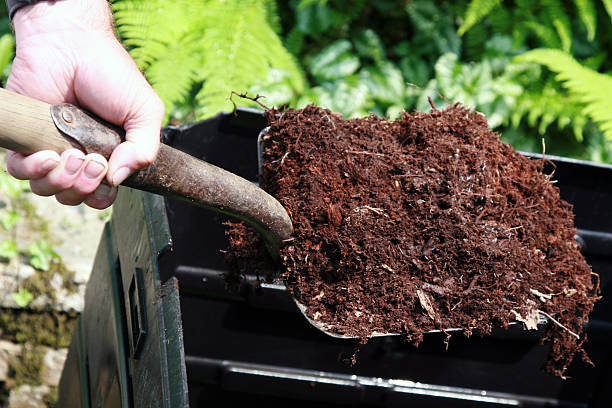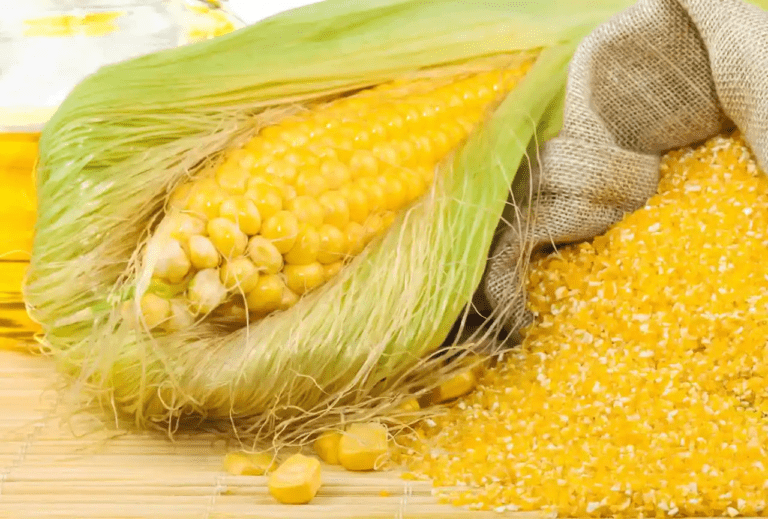Corn Gluten Meal: Your Natural Fertilizer and Herbicide Guide
Table of Contents
The Science Behind Corn Gluten Meal as a Fertilizer
Corn gluten meal has gained recognition as a valuable fertilizer due to its high nitrogen content. Nitrogen is an essential nutrient for plant growth, playing a crucial role in the formation of proteins, enzymes, and chlorophyll. The nitrogen in corn gluten meal is in the form of amino acids, which are readily available for absorption by plants. This results in enhanced vegetative growth and improved overall plant health.
Furthermore, the slow-release nature of nitrogen in corn gluten meal provides a sustained source of nutrients for plants over an extended period. Unlike synthetic fertilizers that can cause rapid nutrient leaching or runoff, corn gluten meal gradually releases nitrogen, reducing the risk of nutrient loss and environmental pollution. This controlled release mechanism ensures that plants receive a continuous supply of nitrogen, promoting steady growth and minimizing the risk of nutrient deficiencies.

Research studies have demonstrated the effectiveness of corn gluten meal as a fertilizer in various applications. One study conducted by scientists at Iowa State University found that corn gluten meal applied to turfgrass resulted in significantly higher nitrogen content and improved grass density compared to untreated areas. Another study conducted on vegetable crops showed that corn gluten meal application increased yields and improved plant vigor.
The science behind corn gluten meal as a fertilizer is firmly rooted in its nitrogen content and slow-release properties. By providing a sustained source of nutrients, corn gluten meal supports optimal plant growth and health. This makes it a valuable option for gardening enthusiasts seeking an organic and environmentally-friendly fertilizer to enhance their plant’s vitality.
The Benefits of Using Corn Gluten Meal for Weed Control
Corn gluten meal is a popular choice for weed control in gardens due to its numerous benefits.
First and foremost, corn gluten meal is a natural and organic alternative to synthetic herbicides, making it an ideal choice for environmentally conscious gardeners. Unlike chemical herbicides, which can have harmful effects on beneficial organisms in the soil and water systems, corn gluten meal is a safe and sustainable solution that poses no risk to humans, pets, or wildlife.

In addition to its environmental advantages, corn gluten meal also acts as a pre-emergent herbicide, meaning it prevents weed seeds from germinating in the first place. This makes it particularly effective in controlling annual weeds that commonly plague gardens. By inhibiting the root development of weed seedlings, corn gluten meal significantly reduces weed growth and competition for nutrients, leading to healthier plants and improved yields. Furthermore, corn gluten meal contains a high percentage of nitrogen, which not only serves as a fertilizer for existing plants but also contributes to their overall strength and vitality.
How to Properly Apply Corn Gluten Meal as a Pre-emergent Herbicide
Applying corn gluten meal as a pre-emergent herbicide can effectively control weed growth in your lawn or garden. To maximize its effectiveness, it is crucial to follow proper application techniques.
Firstly, it is important to apply corn gluten meal at the right time. Timing is key as the herbicide works by inhibiting the germination of weed seeds. Ideally, it should be applied in early spring before the weeds have a chance to establish themselves. This will prevent them from taking root and spreading throughout your garden.
When it comes to application, uniform coverage is essential. Spread the corn gluten meal evenly across the targeted area using a broadcast spreader or a handheld spreader for smaller spaces. Take care to avoid clumping or overlapping as this can result in uneven distribution and potentially leave some weed seeds untreated.

Furthermore, it is recommended to water the area immediately after applying corn gluten meal. This helps activate the herbicide and ensures it gets absorbed into the soil. A light watering of around 0.5 inches is usually sufficient. However, be cautious not to overwater as it may wash away the herbicide before it can take effect.
Lastly, remember that corn gluten meal is not a selective herbicide and can inhibit the germination of all seeds, including desired plants. Therefore, only apply it to areas where you do not intend to grow new seeds or plants. Additionally, be patient as it may take several applications over multiple seasons to effectively control weed growth.
By following these guidelines and using corn gluten meal as a pre-emergent herbicide, you can enjoy a weed-free lawn or garden while avoiding the use of synthetic chemicals. However, always refer to the product’s label instructions for specific application rates and precautions.
Understanding the Timing and Frequency of Corn Gluten Meal Applications
The effectiveness of corn gluten meal as a pre-emergent herbicide depends on the timing and frequency of its applications. Timing is crucial because corn gluten meal works by inhibiting the germination of weed seeds. It must be applied before the weed seeds have a chance to sprout. According to research conducted by the Iowa State University Extension, the ideal timing for corn gluten meal application is when the soil temperature reaches around 55 to 60 degrees Fahrenheit, which is usually in early spring.
| Timing | Frequency |
|---|---|
| Early Spring (March) | Once |
| Late Spring (April) | Once |
| Early Summer (May-June) | Once or as needed |
| Fall (September) | Once |
However, it is important to note that the timing may vary depending on your specific region and climate. To determine the best time to apply corn gluten meal in your area, it is recommended to monitor the soil temperature using a soil thermometer. This will ensure that you apply it at the right moment to prevent weed seed germination effectively.
In terms of frequency, corn gluten meal should be applied at regular intervals to maintain its effectiveness as a pre-emergent herbicide. Research from the University of Maine Cooperative Extension suggests that for optimal weed control, corn gluten meal should be applied twice a year – once in the spring and again in the fall. Applying it at the recommended intervals will help to disrupt the weed life cycle and prevent the growth of undesirable plants in your garden or lawn. However, be cautious not to exceed the recommended application rate, as excessive use of corn gluten meal may harm desirable plants as well.
Corn Gluten Meal: A Safe and Organic Alternative to Synthetic Herbicides
Corn gluten meal is gaining popularity as a safe and organic alternative to synthetic herbicides. With increasing concerns about the potential health and environmental risks associated with chemical weed control products, many gardeners and homeowners are seeking natural options.
What sets corn gluten meal apart is its ability to control weeds without harming other plants or polluting the soil. This natural substance is a byproduct of corn processing and contains high levels of protein. When applied as a pre-emergent herbicide, it inhibits the germination of weed seeds, preventing them from taking root and growing. Unlike chemical herbicides, corn gluten meal poses no risk of runoff or contamination of groundwater. Additionally, it breaks down over time to release valuable nutrients, making it a dual-purpose fertilizer.
| Property | Corn Gluten Meal |
|---|---|
| Composition | Natural protein derived from corn |
| Herbicidal Action | Acts as a pre-emergent herbicide, inhibiting root development of germinating seeds |
| Weed Control | Effective against annual weeds, such as crabgrass, foxtail, dandelions, and other broadleaf weeds |
| Safety | Considered safe for use around pets, children, and wildlife |
| Organic Certification | Approved for use in organic agriculture and gardening |
| Nutrient Content | Contains approximately 10% nitrogen by weight |
| Application | Applied as a granular product, usually in early spring before weed seeds germinate |
| Persistence | Breaks down naturally in the soil over time, providing residual weed control benefits |
| Environmental Impact | Biodegradable and poses minimal risk to water sources and non-target plants |
| Limitations | Less effective against established weeds or perennial weeds |
This organic alternative is not only effective but also safe for use around children, pets, and wildlife. It does not leave harmful residues on edible crops, making it ideal for organic gardening and sustainable farming practices. Moreover, corn gluten meal is a renewable resource, helping to reduce dependence on fossil fuel-based herbicides. With its numerous advantages, it’s no wonder that more and more gardeners are turning to corn gluten meal as a safe and environmentally friendly option for weed control.
The Environmental Impact of Using Corn Gluten Meal as a Herbicide
Corn gluten meal is an organic alternative to synthetic herbicides when it comes to weed control in gardens and lawns. One of the major advantages of using corn gluten meal is its minimal environmental impact. Unlike chemical herbicides, corn gluten meal is non-toxic and breaks down naturally over time, reducing the risk of harm to beneficial plants, animals, and microorganisms in the ecosystem.
Studies have shown that corn gluten meal does not leach into groundwater or contaminate the soil with harmful residues. This is particularly important in areas where water sources are vulnerable to pesticide contamination. Additionally, since corn gluten meal is derived from corn, a renewable resource, its production has a lower carbon footprint compared to synthetic herbicides made from fossil fuels.

Furthermore, corn gluten meal acts as a natural fertilizer as it contains approximately 10% nitrogen. This helps promote healthy plant growth while simultaneously inhibiting weed germination. By providing nutrients to desirable plants, corn gluten meal aids in their vigorous growth, making them more competitive against weed infestations. This dual benefit of weed control and fertilization makes corn gluten meal a sustainable solution for maintaining healthy and beautiful gardens while minimizing environmental harm.
Choosing the Right Corn Gluten Meal Product for Your Lawn or Garden
When it comes to choosing the right corn gluten meal product for your lawn or garden, there are a few factors you should consider. Firstly, it’s important to select a product that is specifically labeled as a pre-emergent herbicide. Corn gluten meal acts as a natural weed control by preventing weed seeds from germinating, so you want to make sure you have the right product for this purpose.
Secondly, pay attention to the nitrogen content of the corn gluten meal. Nitrogen is an essential nutrient for plant growth, so you want to choose a product with a sufficient amount of nitrogen to provide the necessary nourishment to your plants. The nitrogen content is typically listed as a percentage on the product label, so look for a corn gluten meal with a nitrogen content suitable for your specific needs. Remember, it’s always best to consult with a gardening expert or refer to a reputable source for specific nitrogen requirements for different plants.
By considering these factors, you can ensure that you choose the right corn gluten meal product that will effectively control weeds while providing the necessary nutrients for healthy plant growth in your lawn or garden.
Tips for Maximizing the Effectiveness of Corn Gluten Meal as a Fertilizer
To maximize the effectiveness of corn gluten meal as a fertilizer, there are several key tips to keep in mind. First and foremost, it is important to apply the corn gluten meal at the right time. This typically means applying it in the early spring, before weed seeds have a chance to germinate. By targeting this critical period, the corn gluten meal can prevent the growth and establishment of unwanted weeds in your garden or lawn.
In addition to timing, the application rate is crucial for achieving optimal results. It is recommended to follow the manufacturer’s instructions regarding the recommended amount of corn gluten meal to apply per square footage. Applying too little may not provide adequate weed control, while applying too much could potentially harm desirable plants. Finding the right balance is key.
| Tip | Description |
|---|---|
| Apply during weed germination period | Use corn gluten meal as a pre-emergent weed control by applying it before weeds sprout |
| Follow application instructions | Apply the recommended amount based on the package instructions for best results |
| Water after application | Water the area lightly after applying corn gluten meal to activate its weed control properties |
| Use in conjunction with other fertilizers | Consider combining with other organic fertilizers for a balanced nutrient supply |
| Reapply as needed | Reapply corn gluten meal as directed or as needed throughout the growing season |
| Store properly | Store corn gluten meal in a cool, dry place to maintain its effectiveness |
Another important tip is to properly water the area after applying the corn gluten meal. Watering helps to activate the product and bind it to the soil, allowing it to effectively inhibit weed seed germination. It is recommended to water the treated area lightly, ensuring that the corn gluten meal remains in place and doesn’t wash away.
Lastly, keep in mind that corn gluten meal is a slow-release fertilizer, so it may take some time for the full effects to be seen. Multiple applications over time may be necessary to continuously suppress weed growth and provide ongoing nutrients for your plants. Monitoring the progress and making adjustments as needed will help to ensure success.
By following these tips, you can maximize the effectiveness of corn gluten meal as a fertilizer and enjoy a weed-free and healthy garden or lawn.
Common Misconceptions About Corn Gluten Meal and its Use as a Herbicide
Corn gluten meal is a natural, organic product that has gained popularity as a herbicide in recent years. However, there are some common misconceptions about its efficacy and use. One misconception is that corn gluten meal can effectively control all types of weeds. While corn gluten meal has been proven to inhibit the germination of certain weed seeds, it may not be as effective against all weed species. The effectiveness of corn gluten meal as a herbicide is highly dependent on the specific weed species and the stage of weed growth.
Another misconception is that corn gluten meal can provide immediate weed control. However, corn gluten meal is a pre-emergent herbicide, meaning it works by preventing weed seeds from germinating. It does not have a post-emergent control effect, which means it may not be effective against established weeds. Therefore, it is important to understand that corn gluten meal is most effective when used as a preventative measure before weed seeds have a chance to grow. It should be applied at the appropriate time, usually before the weed seeds germinate, to achieve the best results.
The Role of Nitrogen in Corn Gluten Meal and its Impact on Plant Health
Nitrogen is an essential nutrient for plant growth and development, playing a critical role in various physiological processes. Corn gluten meal, a byproduct of corn processing, contains a significant amount of nitrogen, making it a valuable fertilizer for promoting plant health. Nitrogen is a crucial component of plant proteins, enzymes, and chlorophyll, all of which are vital for plant growth, photosynthesis, and overall metabolic activities.
When applied to the soil, corn gluten meal not only provides a slow-release source of nitrogen but also acts as a weed suppressant. As the gluten breaks down, it releases nitrogen gradually, ensuring a consistent supply to plants over an extended period. This sustained release of nitrogen helps prevent nutrient leaching and runoff, minimizing environmental pollution and maximizing nutrient utilization. Furthermore, the presence of additional amino acids present in corn gluten meal can enhance soil fertility and microbial activity, improving nutrient uptake by plants.
The high nitrogen content in corn gluten meal, combined with its weed control properties, makes it an ideal choice for gardeners and farmers seeking an organic and sustainable fertilizer alternative. By understanding the role of nitrogen in corn gluten meal and its impact on plant health, individuals can harness the benefits of this natural product to promote lush, vibrant, and weed-free gardens.
Understanding Weed Seed Germination and How Corn Gluten Meal Prevents it
Weed control is a crucial aspect of maintaining a healthy and thriving garden or lawn. Understanding the process of weed seed germination and how to prevent it can greatly contribute to effective weed management. Weed seeds typically require specific conditions to germinate and establish themselves in the soil. By disrupting these conditions, gardeners can prevent weed growth and reduce the need for constant herbicide application.
Weed seed germination relies on a combination of factors, including moisture, temperature, light exposure, and soil quality. When these conditions are favorable, weed seeds activate and begin to sprout, competing with desired plants for essential nutrients and space. However, corn gluten meal can act as a natural inhibitorto the germination of weed seeds. The protein-rich composition of corn gluten meal contains amino acids that prevent roots from developing properly, effectively inhibiting the growth of weed seedlings. It is important to note that corn gluten meal acts as a pre-emergent herbicide, meaning it targets weeds before they have a chance to fully establish themselves in the soil. By halting their growth process at the seedling stage, corn gluten meal effectively reduces the overall weed population in the garden or lawn.
Using Corn Gluten Meal to Control Specific Weeds: A Comprehensive Guide
Corn gluten meal is a highly effective natural herbicide for controlling specific weeds in your garden. It works by inhibiting the germination of weed seeds, preventing them from growing into mature plants. One of the key benefits of using corn gluten meal is its ability to suppress a wide range of weeds, including dandelions, crabgrass, and chickweed, among others.
To effectively control weeds with corn gluten meal, it is important to know the proper application method. As a pre-emergent herbicide, corn gluten meal should be applied before weed seeds have a chance to germinate. This means timing is crucial. Ideally, you should apply corn gluten meal in early spring or fall, when soil temperatures are around 60°F (15°C). Additionally, it is important to follow the recommended application rate, typically 20 pounds per 1,000 square feet. This ensures that enough corn gluten meal is present in the soil to inhibit seed germination without harming desirable plants.
By understanding the specific timing and proper application of corn gluten meal, you can effectively control weeds in your garden and enjoy a healthier, more vibrant landscape. However, it is important to note that corn gluten meal does not work on already established weeds or perennial weeds with deep-rooted systems. In such cases, other weed control methods may be necessary. Nonetheless, with its natural and safe properties, corn gluten meal remains an excellent choice for weed control in an organic and sustainable manner.
The Long-Term Effects of Corn Gluten Meal on Soil Health and Fertility
The long-term effects of corn gluten meal on soil health and fertility are significant factors to consider when incorporating this organic fertilizer into your gardening routine. Corn gluten meal not only provides vital nutrients for plant growth but also contributes to the overall health of the soil.
One of the key advantages of using corn gluten meal as a fertilizer is its ability to enhance soil fertility over time. As the corn gluten meal breaks down, it releases nitrogen into the soil, which is essential for plant growth. Nitrogen is a crucial nutrient that aids in the development of lush, green foliage and promotes healthy root systems. Additionally, the slow-release nature of corn gluten meal ensures a steady supply of nitrogen, preventing leaching and minimizing nutrient loss. This steady supply of nitrogen helps to maintain soil fertility, ultimately leading to improved plant health and productivity.
Moreover, the use of corn gluten meal as a fertilizer can also have positive effects on soil structure and microbial activity. The organic matter present in corn gluten meal helps to improve soil structure, enhancing its ability to retain moisture and nutrients. It also provides a habitat for beneficial microorganisms, such as bacteria and fungi, which play a vital role in nutrient cycling and decomposition. By nourishing these microorganisms, corn gluten meal supports a thriving soil ecosystem, resulting in improved soil health and plant vitality.
In conclusion, the long-term effects of corn gluten meal on soil health and fertility are multi-faceted. Its ability to provide essential nutrients, improve soil structure, and support microbial activity contributes to long-lasting benefits for both your plants and the overall health of your garden. By incorporating corn gluten meal into your gardening practices, you can promote sustainable soil fertility and ensure the long-term success of your plants.
Combining Corn Gluten Meal with Other Organic Fertilizers for Enhanced Results
When it comes to organic gardening, finding the right combination of fertilizers can make all the difference in achieving optimal plant health and growth. One effective strategy is to combine corn gluten meal with other organic fertilizers to enhance results. By harnessing the unique properties of different organic fertilizers, gardeners can create a well-rounded and nutrient-rich soil environment for their plants.
Corn gluten meal is a popular choice for weed control and as a natural source of nitrogen. It is rich in amino acids, proteins, and other essential nutrients that promote healthy plant growth. However, it can be further maximized when combined with other organic fertilizers. For example, combining corn gluten meal with compost can provide a well-balanced mix of nutrients, as compost contributes organic matter and a wide range of nutrients that support plant development. Additionally, the addition of a phosphorus-rich fertilizer, such as bone meal or rock phosphate, can provide the necessary nutrients for root development and overall plant vigor. By combining these organic fertilizers, the gardener can create a powerful and diverse nutrient profile for their plants, resulting in enhanced growth, stronger resistance to pests and diseases, and improved overall plant health.
Stay tuned for the next section, where we will delve into the specific techniques and considerations for using corn gluten meal as a pre-emergent herbicide. By understanding the science behind its application and timing, gardeners can harness the full potential of corn gluten meal as a safe and effective weed control method. So, keep reading to learn more about how corn gluten meal can empower you in your quest for a thriving organic garden.
Case Studies: Success Stories and Real-Life Experiences with Corn Gluten Meal
Case studies provide valuable insights into the real-life experiences and successes of using corn gluten meal as a natural and organic option for weed control and fertilizer. These success stories not only illustrate the effectiveness of corn gluten meal but also highlight its potential to transform gardening practices.
In one case study conducted by a group of experienced gardeners, corn gluten meal was applied as a pre-emergent herbicide in a vegetable garden. The results were remarkable, with a significant reduction in weed growth compared to previous years. Not only did the corn gluten meal effectively suppress weed germination, but it also provided a source of nitrogen for the plants, promoting healthy growth and robust yields. The gardeners were particularly impressed by the ease of application and the safe, non-toxic nature of corn gluten meal, making it a perfect choice for organic gardening.
Another case study focused on a large-scale agricultural operation that used corn gluten meal as part of their sustainable farming practices. By incorporating corn gluten meal into their crop rotation plan, they effectively controlled weeds and reduced the reliance on synthetic herbicides. Over time, the soil quality improved, as the corn gluten meal nourished the soil with essential nutrients. This not only benefitted the current crops but also contributed to the long-term fertility and health of the soil. This success story demonstrates the potential of corn gluten meal to not only control weeds but also contribute to sustainable farming practices that prioritize soil health and environmental conservation.
These case studies demonstrate the significant positive impact of using corn gluten meal as a weed control method and fertilizer. With its proven effectiveness, ease of use, and eco-friendly nature, corn gluten meal can empower gardeners and farmers to achieve weed-free, thriving gardens while minimizing the environmental impact.
Corn Gluten Meal: A Sustainable Solution for Weed Control and Nutrient Enrichment
Corn gluten meal is gaining recognition as a sustainable solution for weed control and nutrient enrichment in gardens and lawns. Derived from corn, this natural byproduct is rich in nitrogen, making it an effective fertilizer and pre-emergent herbicide.
When used as a weed control method, corn gluten meal works by inhibiting seed germination, preventing the growth of unwanted plants. It contains naturally occurring proteins that disrupt the formation of roots in newly sprouted weed seeds, effectively halting their growth. This makes corn gluten meal particularly useful as a preventative measure, as it should be applied before weeds have a chance to germinate.
In addition to its weed control properties, corn gluten meal also serves as a valuable source of nitrogen for plants. Nitrogen is an essential nutrient that promotes healthy growth and vibrant green foliage. By incorporating corn gluten meal into your gardening routine, you can not only prevent the growth of weeds but also provide your plants with a nutrient boost, leading to more robust and thriving vegetation.
To ensure the successful application of corn gluten meal, it’s crucial to consider factors such as timing and frequency. Applying the meal too early may result in it breaking down before weed seeds germinate, rendering it ineffective. Conversely, if applied too late, weed seeds may have already sprouted, negating the preventative effects of the meal. To optimize its weed control benefits, it is generally recommended to apply corn gluten meal in early spring and fall, when weed seeds are most likely to germinate.
As with any gardening product, it is important to use corn gluten meal in accordance with the manufacturer’s instructions. Additionally, combining corn gluten meal with other organic fertilizers can provide enhanced results, as each component contributes to different aspects of plant health. Experimenting with different combinations and observing the results can help tailor your approach to your specific gardening needs.
Overall, corn gluten meal offers a sustainable and environmentally friendly approach to weed control and nutrient enrichment. Its natural properties make it a safe alternative to synthetic herbicides, reducing the potential negative impacts on the ecosystem. By integrating corn gluten meal into your gardening practices, you can maintain a weed-free and nutrient-rich environment while minimizing harm to the surrounding environment.
What is corn gluten meal?
Corn gluten meal is a byproduct of corn processing and is commonly used as a natural fertilizer and weed control solution.
How does corn gluten meal work as a fertilizer?
Corn gluten meal is rich in nitrogen, which is an essential nutrient for plant growth. When applied to the soil, it slowly releases nitrogen, providing a sustainable source of nutrients for plants.
Can corn gluten meal be used on all types of plants?
Yes, corn gluten meal can be used on a wide range of plants, including lawns, gardens, and ornamental plants.
Is corn gluten meal safe for the environment?
Yes, corn gluten meal is considered a safe and organic alternative to synthetic herbicides. It does not harm beneficial insects, wildlife, or the surrounding ecosystem.
How often should corn gluten meal be applied as a pre-emergent herbicide?
Corn gluten meal should be applied twice a year, typically in early spring and early fall, to effectively prevent weed seed germination.
Can corn gluten meal be used in combination with other organic fertilizers?
Yes, corn gluten meal can be combined with other organic fertilizers to enhance its effectiveness and provide a broader range of nutrients to plants.
Are there any specific weeds that corn gluten meal is particularly effective against?
Corn gluten meal is effective in controlling a variety of weeds, including crabgrass, dandelions, and foxtails. However, its effectiveness may vary depending on the specific weed species.
What are the long-term effects of using corn gluten meal on soil health and fertility?
Continuous use of corn gluten meal can improve soil health and fertility by promoting beneficial microbial activity, enhancing nutrient availability, and reducing weed pressure.
Are there any success stories or real-life experiences with corn gluten meal?
Yes, there have been numerous success stories where corn gluten meal has effectively controlled weeds and improved plant health. These case studies highlight the practical application and benefits of using corn gluten meal.
Can corn gluten meal be used on edible crops?
Yes, corn gluten meal is safe to use on edible crops. However, it is recommended to follow the specific guidelines provided by the product manufacturer for application rates and timing.

Pallavi Gupta is a burgeoning writer at SouthElMonteHydroponics, blending her passion for data analysis with a keen interest in biotechnology. Currently pursuing a Bachelor’s in Biotechnology at Amity University, Pallavi delves into the intricacies of life sciences while gaining hands-on experience in the exciting world of data analysis. Her unique background provides a fresh perspective on hydroponic farming, as she explores the intersection of biotechnology and sustainable agriculture. Through her writing, Pallavi aims to bridge the gap between data-driven insights and innovative farming practices, inspiring others to harness technology for a greener future.






